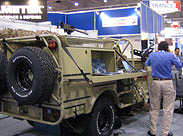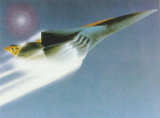 The Office of Foreign Assets Control (“OFAC”) released today its monthly report of penalties imposed by the agency. Of course, that report reveals that OFAC continues to protect our national security by chasing hapless cigarficianados who buy their Cuban Cohibas over the Internet. More interesting, however, was a Penalty Notice posted by OFAC in conjunction with the report and which imposed a penalty of $8,250 on Parkdale Mills, the largest independent yarn spinner in the United States.
The Office of Foreign Assets Control (“OFAC”) released today its monthly report of penalties imposed by the agency. Of course, that report reveals that OFAC continues to protect our national security by chasing hapless cigarficianados who buy their Cuban Cohibas over the Internet. More interesting, however, was a Penalty Notice posted by OFAC in conjunction with the report and which imposed a penalty of $8,250 on Parkdale Mills, the largest independent yarn spinner in the United States.
According to the Penalty Notice, Parkdale attempted to import, in October 2003, 1.65 million pounds of cotton from Sudan. Upon learning that such a transaction would violate the Sudanese Sanctions Regulations, Parkdale cancelled the transaction and the cotton was never imported from Sudan to the United States. In April 2007, OFAC sent a Prepenalty Notice to Parkdale alleging that the attempted import of cotton from Sudan violated section 538.204 and section 538.210 of the Sudanese Sanctions Regulations.
In a written submission to OFAC, Parkdale raised a number of arguments in its defense. The first argument was the Parkdale was unaware of the embargo of Sudan. I suspect that had Parkdale made that argument to Judge Judy, it would have elicited her trademark riposte: “Don’t pee on my leg and tell me it’s raining.” Cotton is the main cash crop of Sudan and constitutes 45 percent of its exports. There is no way on earth that Parkdale didn’t know that Sudanese cotton was embargoed.
Second, Parkdale claimed that First Atlantic Commodities told it that there were no licensing requirements. This argument is pretty much the equivalent of saying that your Uncle George thought the transaction was okay, given that First Atlantic Commodities is a small North Carolina company that appears to be principally involved in the real estate business and not international trade.
Saving its best argument for last, Parkdale also noted that it had in fact cancelled the order when it discovered that it violated the embargo. More likely, it cancelled the order when a freight forwarder or shipper said it wouldn’t handle the transaction because it seems inconceivable that Parkdale “discovered’ the prohibition only after it ordered the cotton.
OFAC, not surprisingly, wasn’t impressed by the first two arguments made by Parkdale. It provided a 25% mitigation of the originally proposed $11,000 penalty and based that mitigation on Parkdale’s previously clean record, its cancellation of the order and its timely provision of a response to the Prepenalty Notice.
Parkdale should really consider itself lucky here. For the life of me, I don’t understand why it would try to mitigate an $11,000 fine from OFAC by telling a story which, even on the off chance that it were true, sounds like a whopper. A company like Parkdale is going to be assumed to be a sophisticated company that buys large amounts of cotton on the world market and would therefore be quite aware of the embargo on Sudanese cotton — unless the entire purchasing staff of the company had been conducting their trading operations from space ships in some distant galaxy. Moreover, no agency likes to hear companies assert that the agency’s regulatory activities were so unimportant that the company just couldn’t bother to keep abreast of agency regulations. If OFAC had been more aggressive, it might well have launched an investigation into whether the response to the Prepenalty Notice was a misrepresentation that warranted further civil and/or criminal penalties.
 The Guardian had an interesting dispatch from this year’s Defense Systems and Equipment Show:
The Guardian had an interesting dispatch from this year’s Defense Systems and Equipment Show:
 Posted by
Posted by  Category:
Category: 

 The
The  The Office of Foreign Assets Control (“OFAC”) released today its
The Office of Foreign Assets Control (“OFAC”) released today its  An alert reader pointed out this interesting
An alert reader pointed out this interesting 

